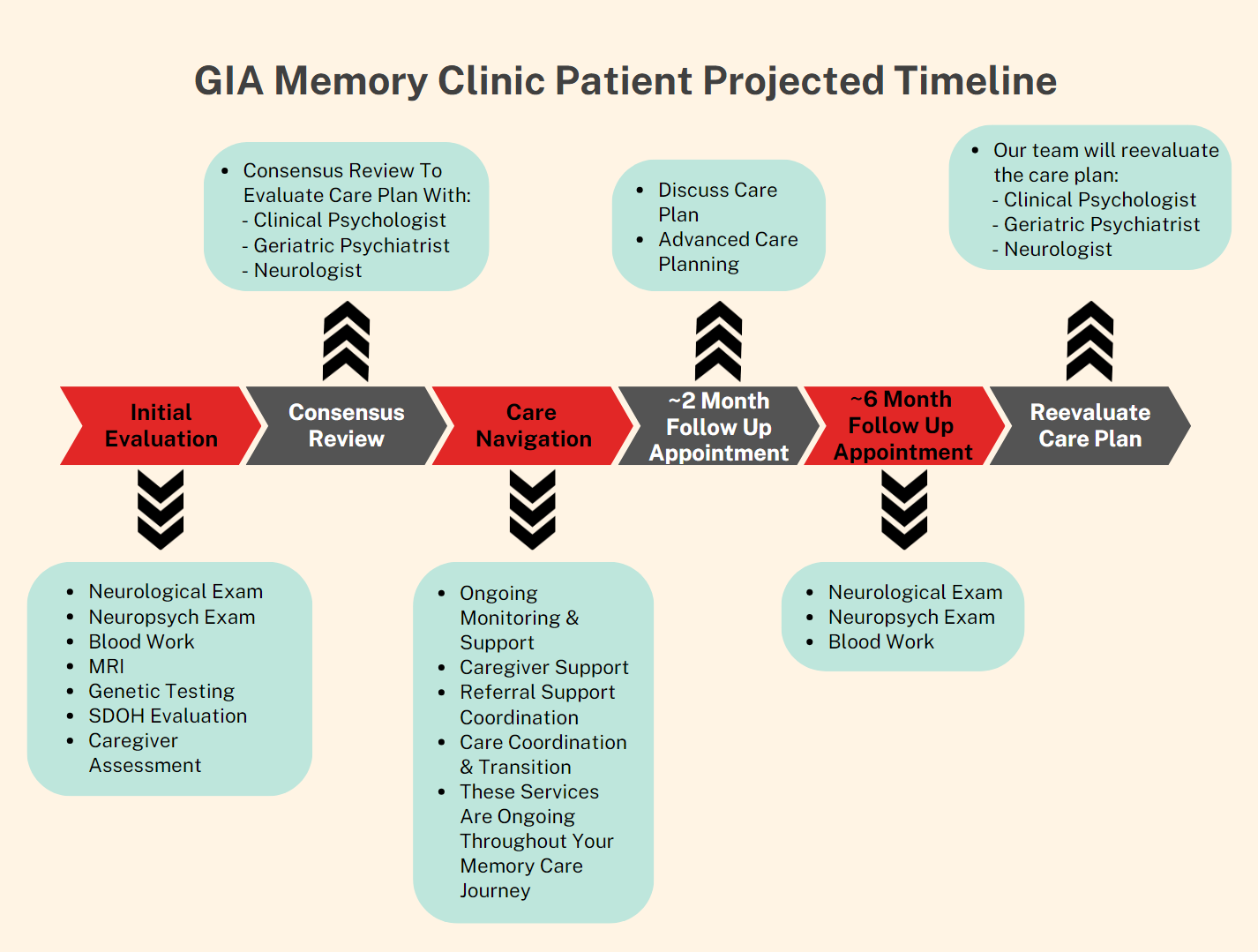Comprehensive Memory Clinic
Comprehensive Memory Clinic

In partnership with the Texas Tech University Grief And Response To Illness Into Late Life (GRILL) Lab, the Texas Tech University Health Sciences Center Garrison Institute on Aging, introduces the GIA Comprehensive Memory Clinic. The GIA Comprehensive Memory Clinic provides vital memory care services for persons with Dementia and family members, including comprehensive assessments, care plan, medication management, caregiver support and education.
Contact Us
Garrison Institute on Aging
6630 Quaker Ave, Suite E,
Lubbock, Texas 79413
Phone: (806) 743-9401
Email: GIAMC@TTUHSC.EDU

Give Today
DONATE NOWHelpful Links
- Alzheimer’s Disease Awareness Month
- Clinician & Physician Referral
- Community Advisory Board
- Dementia Friendly Lubbock
- Family & Self-Referral
- GRILL Lab
- GUIDE Program
- Meet The Team
GIA Personalized Care Services
Dementia
Dementia is an umbrella term used to describe decline in thinking, memory, or behavior
affecting ones ability to live and function with independence.
Alzheimer's Disease
Alzheimer’s disease is the most common type of dementia. This disease causes changes
in memory, thinking and behavior. Symptoms typically develop slowly and gradually
worsen over time, interfering with activities in ones daily life.
Frontal Temporal Dementia
Frontotemporal Lobar Degeneration (FLTD) is a group of neurodegenerative conditions
in which cognitive and behavioral decline is related to changes in the brain’s frontal
and temporal regions.
Lewy Body Dementia
Lewy Body Dementia (LBD) is a progressive neurodegenerative condition associated with
cognitive, psychiatric, and motor symptoms caused by abnormal protein deposits called
Lewy bodies.
Memory Concerns
Many people experience changes in their memory as they age. If you or a loved one
have concerns about changes in memory or thinking, make an appointment with a physician
to determine the cause.
Vascular Dementia
Vascular Dementia describes cognitive decline associated with impaired blood flow
to the brain.
Mild Cognitive Impairment
Mild Cognitive Impairment (MCI) is a clinical diagnosis used to describe persons who
have more problems with cognition (memory and other thinking abilities) than would
be expected for their age. Although these changes may adversely impact ones daily
life, persons with MCI are still able to care for themselves and live independently.
Neurocognitive Assessment
Persons with Dementia will receive a comprehensive cognitive assessment to identify
their current health status.
Care Plan
Persons with Dementia receive care plans that address their goals, preferences, and
needs, which empowers them feel certain about next steps.
Medication Management
Clinician reviews and reconciles medication as needed, through care navigators who
provide tips for persons with Dementia to maintain the correct medication schedule.
On-Going Monthly Support
GIA Clinicians provide long-term help to persons with Dementia and their family members
so they can revisit their goals and needs at any time and are not left alone in the
process. This will be one-on-one monthly check-ins with the Healthcare Professional.
Referral Coordination
Persons with Dementia and their family members will be connected to community-based
services and supports, such as home-delivered meals and transportation.
Caregiver Support
Family members can take educational classes and beneficiaries will receive respite
services, which helps relieve the challenges of caregiving duties.
Advanced Care Planning
Persons with Dementia and their family members meet with a Healthcare Professional
to discuss and prepare for care that could be provided for you in the future.

If you are experiencing life-threatening symptoms, such as chest pain, shortness of breath, severe abdominal pain, stroke symptoms, or loss of consciousness, please dial 9-1-1 or visit the nearest emergency room.
To learn more about the GIA Comprehensive Memory Clinic or speak to a team member, click here, and we will contact you soon.

